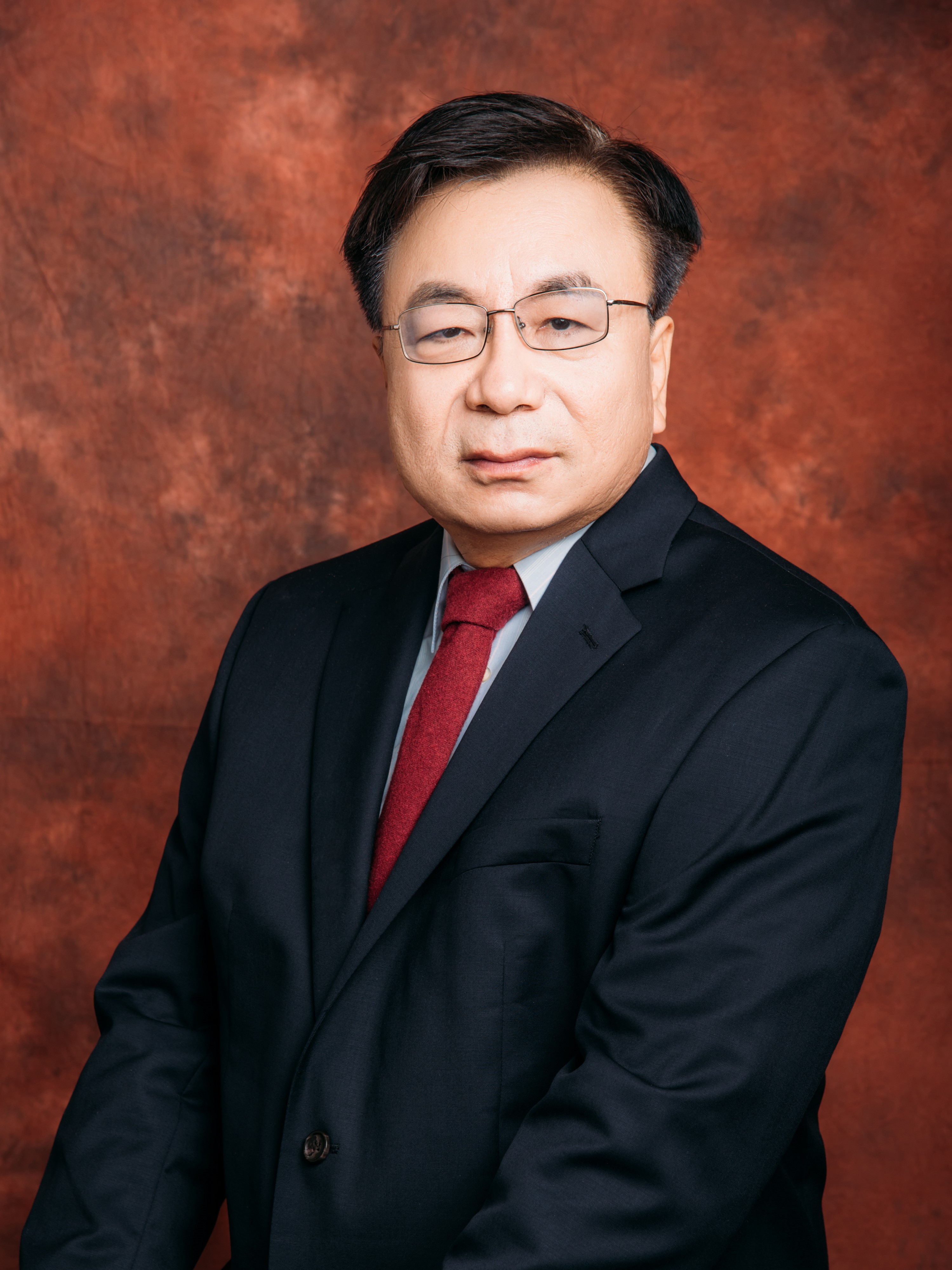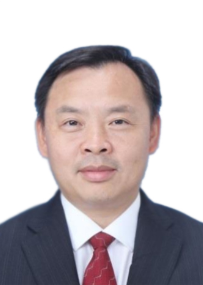
Prof. Deyu Qi, South China University of Technology, China
齐德昱教授,华南理工大学
Qi Deyu, B.sc., M.Tech., PhD.Tech, Professor, doctoral supervisor. He has served as professor of South China University of Technology(SCUT), doctoral supervisor of computer science and technology and software engineering of SCUT, director of Research Institute of Computer System at SCUT, director of Joint IoT Innovation Lab of The University of Texas at Arlington and South China University of Technology, chairman of Alliance of Guangdong Credibility Computing and Block Chain, vice chairman of Alliance of Guangzhou Smart Education, academic leader of Advanced Computing Architecture of SCUT, director of Research Institute of Guangzhou Future Information Technology, director of Research Institute of Intelligence Augmentation at South China Business College
The main research directions include new generation computer system architecture, software development methods and software architecture, CASE and software development environment and tools, intelligence augmentation, intelligent control, computer system security and so on. The application directions include cloud computing, big data, Internet of things, artificial intelligence, information security, system software and high performance computing.
He has written and published many textbooks and monographs, published more than 200 academic papers in well-known journals, and obtained 11 authorized invention patents
As the host, He have completed many research projects, including the projects of the National High Technology Program (863), the National Natural Science Foundation of China, the National Natural Science Foundation of Guangdong Province, the National Technology Innovation Fund project, the Guangdong key science and technology projects, breakthroughs for key areas of Guangdong and Hong Kong Joint and so on.
He has put forward a series of methods and techniques. It includes VLSI dynamic testability analysis method Fanalysis, object-oriented analysis abstract model LOODS, product conceptual design intelligent support architecture HCP, distributed application system interoperation model XIOM, multi-database middleware DoD, framed data collection and distribution environment and tool DataHub, computing model GridJack based on formal domain fusion, integrated line-speed network security inspection system, big data model and management system GriDoc, C mode software development method and framework EIO based on pumping service, unified software development platform OneP/USIP, unified application support environment OAA, pan-manufacturing platform UPP.
Title:METHOD AND MODEL OF BIG DATA PROCESSING AND FORMING ORIENTED TO THE VALUE-ADDING OF DATA ASSET
Abstract:GriDoc is G is a processing and forming method for big data, which comprises a fusion model, an organization model and an operation model, and supports users to process big data into data products meeting individual requirements through the fusion model and the organization model, so as to realize the value-adding of big data. The fusion model abstracts data operations into five basic operations, G, T, S, A and F, and constructs in our our computational model Gridjack a dynamic data fusion network based on multiple bipartite graphs to realize strategic data acquisition, processing, integration and fusion. The organization model supports users to weave data components in fusion networks into their own data and knowledge views through the "tablelist-inclusion" mode. The use of this method can may simultaneously concentrate the shared data of disorderly distributed data sources logically in a network, realize the model-based operation of big data and the knowledge expression based on multiple bipartite graphs, and make applications highly independent from Big Data processing

Prof. Jinping Ao, Jiangnan University, China (IEEE Senior Member)
敖金平,教授,江南大学(IEEE高级会员)
Dr. Jin-Ping Ao, Professor and Doctor Supervisor of Jiangnan University, senior member of the IEEE. Dr. Ao received his BS degree in physics from Wuhan University in 1989, Wuhan, MS degree in semiconductor physics and devices from Hebei Semiconductor Research Institute (HSRI) in 1992, Shijiazhuang, and PhD degree in electronic engineering from Jilin University in 2000, Changchun, China. He joined HSRI in 1992, working on high-speed compound semiconductor devices and integrated circuits, optoelectronic devices and optoelectronic integrated circuits. He joined The University of Tokushima, Japan, in Feb 2001, as an associate professor involved in the research and development of wide bandgap semiconductor electronic devices, monolithic integrated circuits, chemical sensor and optoelectronic devices. From 2016, he became a professor and doctoral supervisor of Xidian University. He joint Jiangnan University in 2022. He published more than 300 papers in international journals and conferences, owing more than 30 patents.
Title:GaN microwave wireless power transmission technology and its application prospect in IoT systems
Abstract:Microwave wireless power transmission technology transfers electric power into microwave (GHz level of frequency), emits by an antenna for long distance, transmits in a medium or a free space directly to a receiver. After microwave rectification, the DC power can be applied to a load, applying a long-distance (over ten thousand kilometers) and directional electric power transmission with high capacity. Due to the poor performances of the key electric components in the past, both the transmission efficiency and the transmission power were low. With the development of the microwave technology and emerging of the gallium nitride (GaN) semiconductor technology, the solutions of the microwave wireless power transmission technology are much innovated, the transmission efficiency are also improved. GaN is one of the most important wide bandgap semiconductors. It is being used to develop short-wavelength light emitting diodes and laser diodes, as well as being the key material for the next generation high-frequency, high-power and high-temperature electron devices. In this talk, GaN Schottky barrier diodes (SBDs) with quasi-vertical structure were specially designed and manufactured for the low-power microwave rectification. Superior device performances were achieved comparing with the traditional devices. Microwave rectifiers were designed and measured. Owing to the outstanding diode performance and microwave circuit design, a measured conversion efficiency of 92% was achieved at the input power of 23 dBm at 905 MHz. At 2.45 GHz, a measured conversion efficiency of 91% was achieved at the input power of 25 dBm. The transmission distance is 3 m under emission power of 39 dBm and receiving power of 12.5 dBm at 905 MHz. Based on this technology, the wireless power transmission distance will be improved significantly. It can be used to supply many IoT equipment simultaneously from distance, leading to a technological breakthrough for the IoT systems.

Prof. Ming Jiang, Sun Yat-sen University, China (IEEE Senior Member)
江明教授,中山大学(IEEE高级会员)
Ming Jiang received the B.Eng. and M.Eng. degrees in electronic engineering from the South China University of Technology (SCUT), China, and the Ph.D. degree in electronic engineering from the University of Southampton, U.K. He has substantial international and industrial experience with Fortune 500 telecom companies. From 2006 to 2013, he had held key research and development or management positions at Samsung Electronics Research Institute (SERI), U.K.; Nortel Networks' research and development center, China; and the telecom equipment maker New Postcom, China, where he actively participated in numerous collaborative projects across the EU, North America and Asia, contributing to algorithm and system research and standardization, as well as radio access and core network product designs. Since June 2013, he has been a Full Professor and a Ph.D. Supervisor with Sun Yat-sen University, China, where he focuses on both fundamental research and technology transfer, and leads a number of national, provincial and industrial research projects. He has coauthored six books, 90+ articles, 100+ patents and 400+ 3GPP/IEEE standardization contributions. He received several Chinese local council awards in 2011 and 2022, including Innovative Leading Talents, Outstanding Experts, and Top Overseas Scholars.
Title:Massive MIMO Aided Multinetwork 3D Positioning
Abstract: Massive multiple-input multiple-output (M-MIMO) aided positioning technologies have been recently recognized as promising solutions to fulfil the high accuracy requirement of indoor localization systems. In this paper, exploiting a distributed M-MIMO framework, we propose to employ a deep belief network (DBN) to analyze the received signal strengths (RSS) generated by a diffraction model, where the impact from interfering persons on the targeted user equipment (UE) is considered. Next, the preliminary DBN estimates are forwarded to a long-short term memory network (LSTMN), where the trajectory information of the targeted UE can be extracted based on much less historical trajectory information than existing solutions. Then, the three-dimension (3D) coordinates of the UE's positions can be estimated with a back propagation neural network (BPNN) which combines the outputs of DBN and LSTMN. Finally, extensive simulation results are provided to demonstrate the effectiveness of the proposed BPNN scheme.
